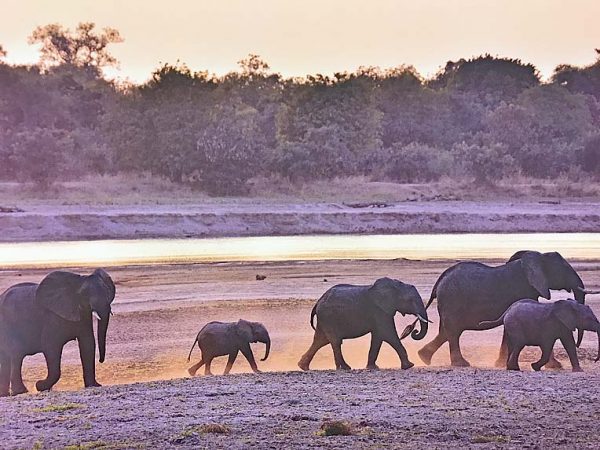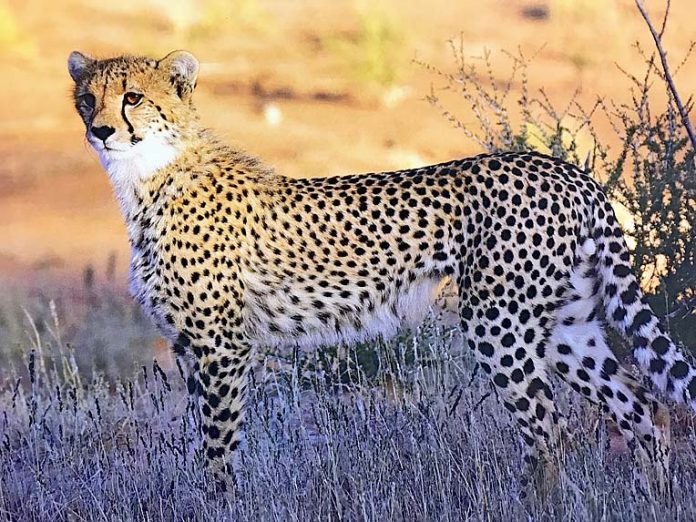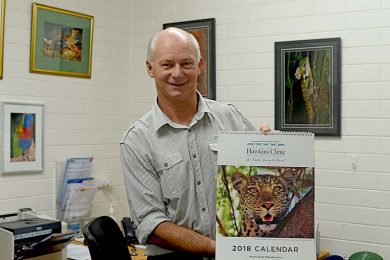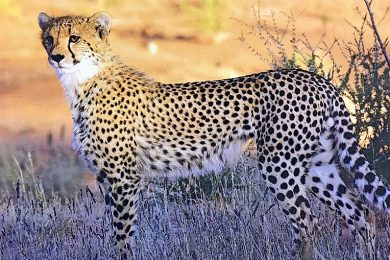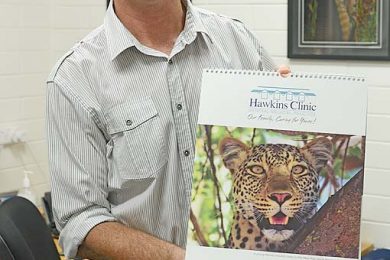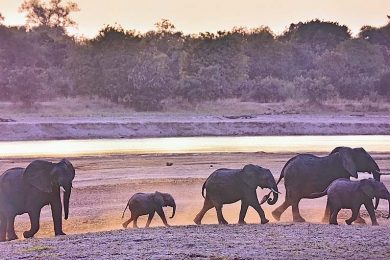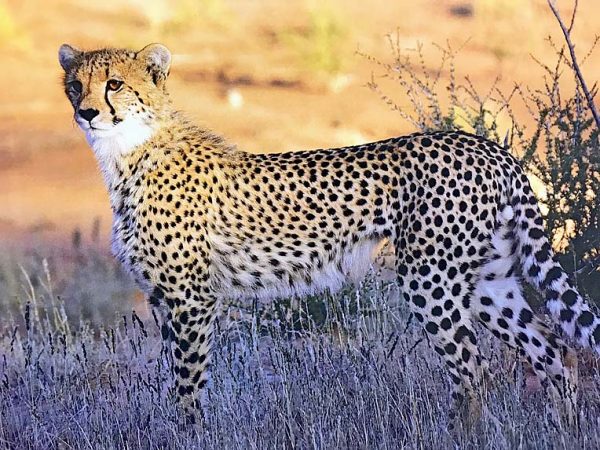
FRAMED photographs of big cats and sweeping landscapes adorn the walls of Doctor Mike Bruorton’s office at Hawkins Medical Clinic, hinting at his former life as a zoologist.
While the impressive collection would not look out of place in an art gallery, more impressive is the fact the stunning images were captured by Dr Bruorton himself.
An avid wildlife photographer, Dr Bruorton is self-taught and a self-proclaimed “big cat freak” with a masters degree in zoology.
“Many years back, before I studied medicine, I was a zoologist,” Dr Bruorton said.
“I grew up on the South African coast just south of Durban and studied zoology near there and worked on primates and in some game lodges.
“Ever since I started working in the game lodges I have enjoyed photography – as a zoologist I could take photos of the animals other people would never have the opportunity to take.”
Before the era of digital photography, Dr Bruorton had a darkroom in his home and would develop his own images.
“I was into the black and white photography before the digital stuff came in,” he said.
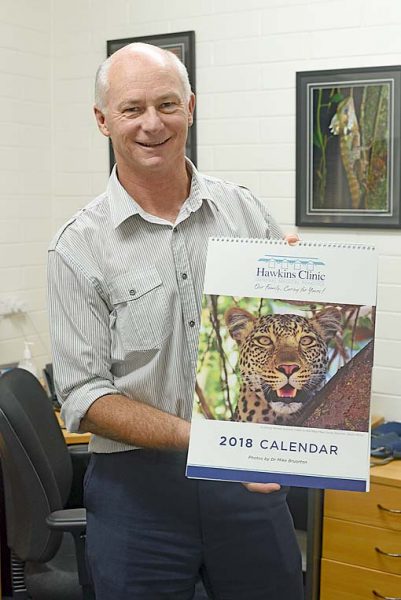
“I got to the point where I was reasonable enough to start selling stuff and I had a few photos published in books about mammals.”
While at medical school in Johannesburg, photography became an avenue for Dr Bruorton to supplement his university fees.
“I did do a few weddings and during my medical degree my wife worked at a private girls school – we lived on a cottage on the property on the basis I would do some work there as well, so I took the school photos,” he said.
“It didn’t exactly pay for my university fees entirely, but it helped a little.”
After he completed his medical degree in the late ’90s, Dr Bruorton moved to the United Kingdom, where he began his career as a GP.
“I moved to the UK in 1997, but after four years there I’d had enough and was keen to move to Australia,” he said.
“My wife and I didn’t want to live in a big city, we wanted to work in a rural area, but didn’t want to be in a very small town and we were looking for a place with good sporting facilities and a good choice of schools.
“Just as we were seriously starting to look for a place, an ad came up in the British Medical Journal for doctors in Mount Gambier.
“I did a phone interview for a position and we thought the city looked perfect for us.”
Dr Bruorton, his wife Penny and their two young children moved to the Blue Lake city in 2002.
“We have been very happy here and wouldn’t dream of moving anywhere else now,” he said.
“My daughter just finished the first year of her teaching degree and my son is also a doctor – he is training in pediatrics at the moment.”
Dr Bruorton recently returned to Southern Africa for an extended safari and has since produced a 2018 calendar available for purchase at Hawkins Medical Clinic.
He will donate all proceeds to the United Nations International Children’s Emergency Fund (UNICEF).
“I had long service leave so my wife and I went back to Southern Africa, hired a four by four with a rooftop tent and travelled through the Kalahari Desert, Namibia, Zimbabwe, Botswana and Zambia for four months,” Dr Bruorton said.
“I am a big cat freak, I find them fascinating, so there are a lot of big cats featured in the calendar – my favourite is definitely the leopard.
“Some of the pictures were taken at a game lodge where I used to work.”
Dr Bruorton said UNICEF was a charity he had donated to for many years.
“UNICEF is very active in Africa and I think they do amazing work,” he said.
“It’s a way of getting first line treatment to kids in danger – coming from Africa you see that a lot more.
“Even smaller things like giving kids mosquito nets has led to a huge reduction in cases of malaria – UNICEF makes a real difference, particularly in the third world.”
He said the calendars cost $10 to produce and were on sale for $15, with the $5 profit going direct to UNICEF.
“We just had to order another 50 today – we’ve sold around three hundred and so far have about $1500 to donate,” Dr Bruorton said.
“I’m looking forward to handing over a big cheque.”
